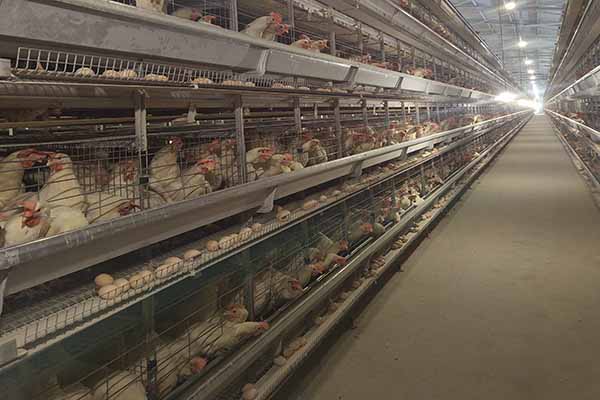Requirements for Environmental Protection Equipment in Tanzania Chicken Farms
Time : 2025-04-26
In Tanzania, the poultry industry is booming, with chicken farms popping up all over the country. As the industry grows, so does the need for proper environmental protection equipment. This article will delve into the essential requirements for environmental protection equipment in Tanzania chicken farms, ensuring a healthy and sustainable operation.
Introduction to Environmental Protection in Chicken Farms
Environmental protection in chicken farms is crucial for several reasons. Firstly, it ensures the well-being of the chickens, which is the backbone of the industry. Secondly, it helps in minimizing the impact on the local environment, including air and water quality. Lastly, it contributes to the overall sustainability of the poultry business.
1. Ventilation Systems
One of the most critical requirements for environmental protection in chicken farms is an efficient ventilation system. This system ensures that the chickens have a constant supply of fresh air while removing excess heat, ammonia, and moisture. Here are some key aspects to consider:
– Airflow: The system should provide a consistent and even airflow throughout the entire farm.
– Air Filters: High-quality air filters are essential for removing dust, dander, and other contaminants.
– Humidity Control: The system should be capable of maintaining optimal humidity levels to prevent respiratory issues in chickens.
2. Manure Management
Manure is a significant concern in chicken farms. Proper manure management not only helps in reducing the risk of disease but also minimizes the environmental impact. Here are some essential considerations:
– Solids Separation: Implementing a solids separation system can help in reducing the volume of manure that needs to be disposed of.
– Composting: Composting manure is an eco-friendly way to reduce waste and create organic fertilizer.
– Anaerobic Digestion: This process converts manure into biogas, which can be used as an energy source.
3. Water Treatment
Water is a critical resource in chicken farming, and its quality must be maintained. Here are some requirements for water treatment in chicken farms:
– Water Quality Testing: Regular testing of water quality is essential to ensure it meets the required standards.
– Water Filtration: Implementing a filtration system can remove impurities and contaminants from the water.
– Recycling: Recycling water for drinking and cleaning purposes can help in conserving this precious resource.
4. Waste Disposal
Proper waste disposal is crucial for maintaining a clean and healthy environment in chicken farms. Here are some key points to consider:
– Biosolids: Properly managing biosolids, the solid waste product from wastewater treatment, is essential.
– Landfill: If a landfill is used, it should be lined and monitored to prevent leachate contamination.
– Incineration: Incineration can be an option for disposing of waste, but it must be done in an environmentally friendly manner.
5. Biosecurity Measures
Biosecurity is vital to prevent the spread of diseases in chicken farms. Here are some essential biosecurity measures:
– Sanitation: Regular cleaning and disinfection of the farm and equipment are crucial.
– Employee Training: Training employees on biosecurity protocols is essential to prevent the introduction of diseases.
– Visitor Control: Limiting access to the farm and requiring visitors to follow biosecurity protocols can help in preventing the spread of diseases.
Conclusion
In conclusion, the requirements for environmental protection equipment in Tanzania chicken farms are multifaceted. From efficient ventilation systems to proper manure management, water treatment, waste disposal, and biosecurity measures, each aspect plays a critical role in ensuring a healthy and sustainable poultry operation. By investing in the right equipment and following best practices, chicken farmers in Tanzania can contribute to the growth of the industry while minimizing their environmental impact.












